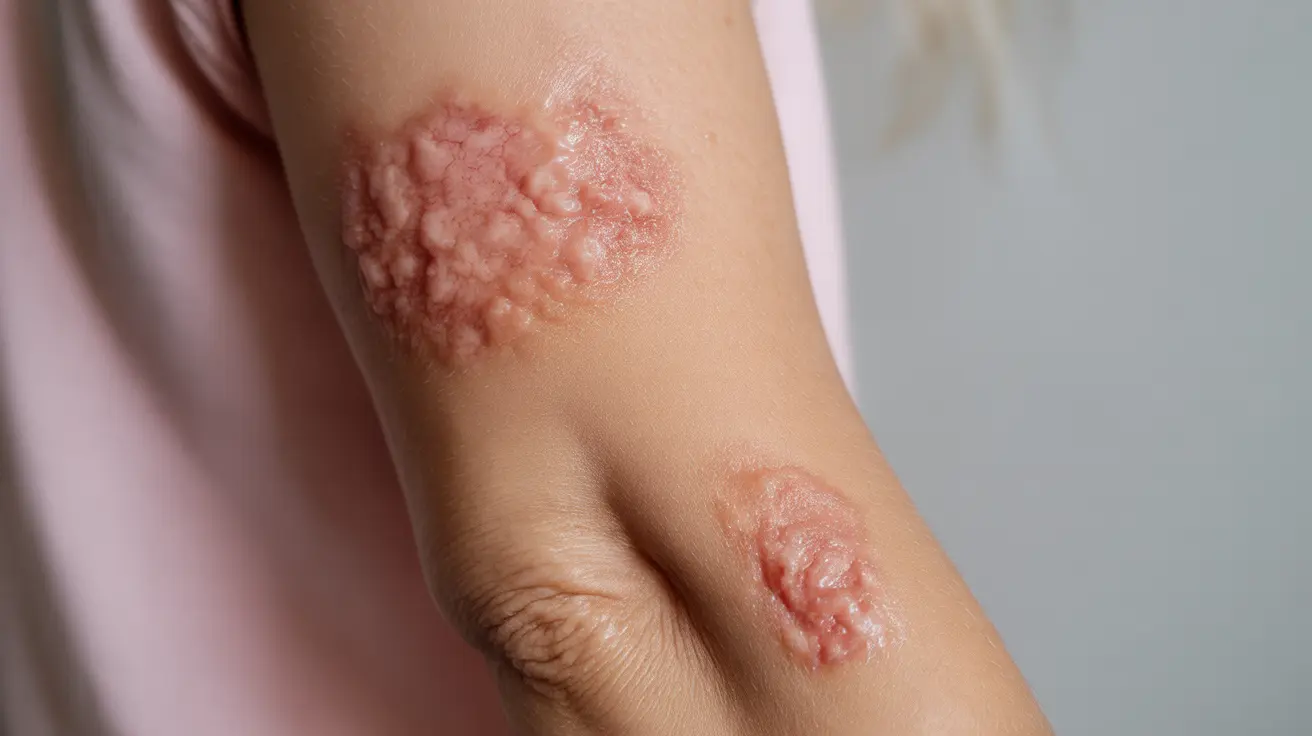Living with Polycystic Ovary Syndrome (PCOS) can affect many aspects of your health, including your skin. For many people with PCOS, unexplained skin rashes and hives are frustrating symptoms that often go overlooked. Understanding the relationship between PCOS and skin reactions is crucial for managing these uncomfortable symptoms effectively.
In this comprehensive guide, we'll explore why PCOS can trigger skin rashes, examine the underlying hormonal connections, and discuss practical solutions for managing these skin concerns.
The Hormonal Link Between PCOS and Skin Rashes
PCOS creates a complex hormonal environment that can significantly impact skin health. The condition typically involves elevated levels of androgens (male hormones) and insulin resistance, which can trigger inflammatory responses throughout the body, including the skin.
This hormonal imbalance can lead to increased histamine production and reduced histamine breakdown, making people with PCOS more susceptible to skin reactions and rashes.
Common Skin Manifestations in PCOS
Inflammatory Skin Conditions
People with PCOS often experience various inflammatory skin conditions, including:
- Chronic hives (urticaria)
- Eczema flare-ups
- Red, itchy patches
- Heat-sensitive skin reactions
Hormone-Related Skin Issues
Beyond rashes, PCOS can cause several other skin-related symptoms:
- Acne, particularly on the face, chest, and back
- Skin tags
- Darkening of skin folds (acanthosis nigricans)
- Excessive hair growth (hirsutism)
Managing PCOS-Related Skin Rashes
Medical Treatment Options
Several medical approaches can help control PCOS-related skin symptoms:
- Antihistamines for immediate rash relief
- Topical corticosteroids for inflammation
- Hormone-regulating medications
- Insulin-sensitizing drugs when appropriate
Lifestyle and Dietary Modifications
Making specific lifestyle changes can significantly impact skin health in PCOS:
- Following a low-inflammatory diet
- Identifying and avoiding personal trigger foods
- Maintaining good skin hygiene
- Managing stress levels effectively
- Regular exercise to improve insulin sensitivity
Natural Approaches to Skin Health
Several natural strategies can help manage PCOS-related skin issues:
- Using gentle, fragrance-free skincare products
- Applying natural anti-inflammatory ingredients like aloe vera
- Supporting gut health through probiotics
- Staying well-hydrated
- Getting adequate sleep
Frequently Asked Questions
- What causes skin rashes or hives in people with PCOS?
Skin rashes in PCOS are primarily caused by hormonal imbalances that increase inflammation and histamine sensitivity in the body. The combination of elevated androgens and insulin resistance can trigger inflammatory responses that manifest as skin rashes and hives.
- How can hormonal imbalances in PCOS lead to increased histamine and skin reactions?
Hormonal imbalances in PCOS can affect the body's histamine regulation, leading to increased histamine production and decreased breakdown. This disruption can make the skin more reactive and prone to developing rashes and hives.
- What are the most common skin problems associated with PCOS besides rashes?
Common PCOS-related skin issues include acne, skin tags, darkening of skin folds (acanthosis nigricans), excessive hair growth (hirsutism), and seborrheic dermatitis. These conditions are primarily driven by hormonal imbalances characteristic of PCOS.
- How do doctors treat skin issues and hives linked to PCOS and histamine intolerance?
Doctors typically use a multi-faceted approach, including antihistamines, topical treatments, hormone-regulating medications, and insulin-sensitizing drugs when necessary. Treatment plans are customized based on individual symptoms and severity.
- Can lifestyle changes or diet help reduce skin symptoms and histamine-related rashes in PCOS?
Yes, lifestyle modifications can significantly impact PCOS-related skin symptoms. Following a low-inflammatory diet, avoiding trigger foods, maintaining good skin hygiene, managing stress, and regular exercise can all help reduce skin reactions and improve overall symptoms.
Understanding and managing the connection between PCOS and skin rashes is crucial for overall well-being. While these skin symptoms can be challenging, a combination of medical treatment, lifestyle changes, and proper skin care can help effectively manage and reduce their impact on daily life.




